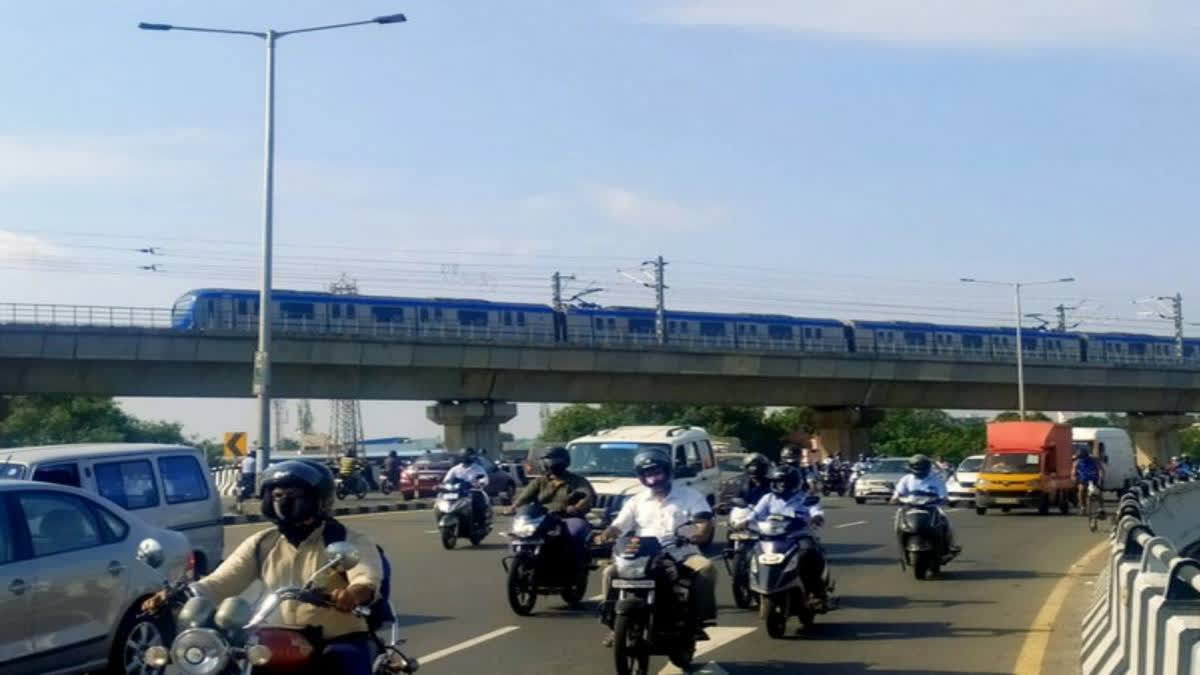New Delhi: The Union Cabinet on Thursday approved the proposal of the Ministry of Housing and Urban Affairs for the Chennai Metro Rail Project Phase-II comprising three corridors.
Explaining the Metro Rail Project Phase-II, Union Minister Ashwini Vaishnaw stated, “The three corridors of the approved lines will cover a total length of 118.9 km with 128 stations. The project's completion cost is estimated at Rs 63,246 crore and is scheduled for completion by 2027. Once Phase II is fully operational, Chennai will have a total Metro Rail network spanning 173 km.
The Phase II Project comprises three corridors: The first corridor runs from Madhavaram to SIPCOT, spanning 45.8 km with 50 stations; the second corridor extends from Lighthouse to Poonamallee Bypass, covering 26.1 km with 30 stations and the third corridor runs from Madhavaram to Sholinganallur, stretching 47 km with 48 stations." Once Phase II is fully operational, Chennai city will have a total Metro Rail network of 173 Km.
Benefits and Bolstering Growth: The Phase II of the Chennai Metro Rail Project represents a significant advancement in the city's infrastructure development. Phase II acts as a major expansion of the Metro Rail Network in the city.
Enhanced Connectivity: Phase II will add approximately 118.9 km of new metro lines, connecting Chennai's North to South and East to West. The corridors pass through key areas such as Madhavaram, Perambur, Thirumayilai, Adyar, Sholinganallur, SIPCOT, Kodambakkam, Vadapalani, Porur, Villivakkam, Anna Nagar, and St. Thomas Mount. This expansion will connect a large number of industrial, commercial, residential, and institutional hubs, providing efficient public transport for the workforce in these areas and improving connectivity across the city.
It will enhance connectivity to rapidly growing areas like Sholinganallur, a key hub in South Chennai's IT corridor. By linking Sholinganallur via ELCOT, the metro corridor will address the transportation needs of the expanding IT workforce in the region.
Thank you, Hon'ble PM @narendramodi, for accepting our request during my last meeting with you and approving the second phase of the Chennai Metro Rail Project. This long pending demand of the people of Tamil Nadu having been addressed now, we are confident of completing the… https://t.co/rCGCM3zkgW
— M.K.Stalin (@mkstalin) October 3, 2024
Reduction in Traffic Congestion: Metro Rail as an efficient alternate road transport and with Phase II as an extension to the Metro Rail network in Chennai city is expected to alleviate traffic congestion and will be particularly impactful on heavily congested routes of the city. Reduction in road traffic can lead to smoother movement of vehicles, reduction in travel time and increased overall road safety.
Environmental Benefits: With the addition of Phase-II Metro Rail Project and an increase in the overall Metro Rail Network in Chennai city, can significantly reduce carbon emissions compared to traditional fossil fuel-based transport.
Economic Growth: Reduced travel times and improved access to different parts of the city can enhance productivity by allowing individuals to reach their workplaces more efficiently. The construction and operation of Phase II will generate numerous jobs in various sectors, from construction workers to administrative staff and maintenance personnel. Also, the enhanced connectivity can stimulate local businesses, especially in areas near new metro stations which can also attract investment and development in previously less accessible regions.
Social Impact: The expansion of the Phase-II Metro Rail network in Chennai will provide more equitable access to public transport, benefiting diverse socio-economic groups and reducing transport disparities, which will contribute to a higher quality of life by reducing commute times and improving access to essential services.
Read more: Chennai Air Show 2024: Get Ready For A Dazzling Air Adventure Show By Air Force



